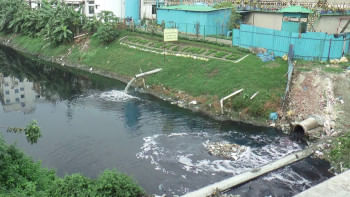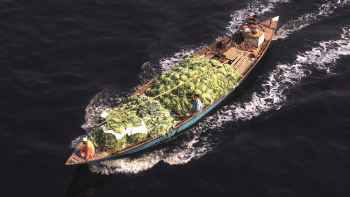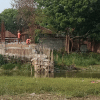Stop killing our 'sign of life'

As we observe World Water Day, it is unacceptable that people's access to clean water, sanitation, and hygiene in Bangladesh is in such a sorry state. Despite making some progress towards improving its water and sanitation infrastructure and services, Bangladesh is still miles away from achieving the targets of ensuring universal access to the availability and sustainable management of water and sanitation for all, which is a part of the United Nations Sustainable Development (Goals SDG 6). According to 2022 data from water.org, 41 percent of the population in Bangladesh – around 68 million people – lacked access to a reliable, safely managed source of water. Around 61 percent of the population – a staggering 100 million people – lacked access to safely managed household sanitation facilities. According to a World Health Organization (WHO) study from 2021, 107 million people in Bangladesh did not have basic handwashing facilities with soap and water at home.
The data clearly illustrate that the state of our water management is in dire straits. With so much hype around Bangladesh's graduation from the Least Developed Country category (LDC), the real scenario of millions of people not having access to basic water-related services is extremely concerning. What is the point of development that cannot even ensure people's access to safe drinking water and proper sanitation facilities?
As this newspaper reported exactly a year ago, Bangladesh ranks seventh out of 10 countries in the Asia-Pacific region that extract the most groundwater, according to UN findings. Such quick depletion of groundwater not only puts at risk our access to safe drinking water, but could also lead to major problems for our agriculture and industries. Moreover, approximately 5-24 percent of the land area in Bangladesh is exposed to extremely high to high risks of elevated arsenic, salinity and groundwater depletion hazards. And this means that somewhere between 4.5 percent to 17 percent of our population are still being exposed to these health hazards, leading to enormous health problems for people. Yet, the emphasis put by the authorities on improving this situation over the years has been grossly inadequate.
The answer to solving the problem can be found in reducing our dependence on groundwater. As per the SDGs, 70 percent of our water consumption must come from surface water sources. But, as we know, our surface water is horribly polluted and its use will only be possible once the government ensures enough water recycling and purifying plants.
At the same time, the government also needs to protect whatever surface water is available from further contamination. In that regard, the government has to make the use of effluent treatment plants mandatory for all factories. The lax enforcement of laws is the biggest problem we have when it comes to water management in the country – leading to the widespread pollution of our rivers, for example. And the onus is on the authorities to change that.


 For all latest news, follow The Daily Star's Google News channel.
For all latest news, follow The Daily Star's Google News channel. 









Comments